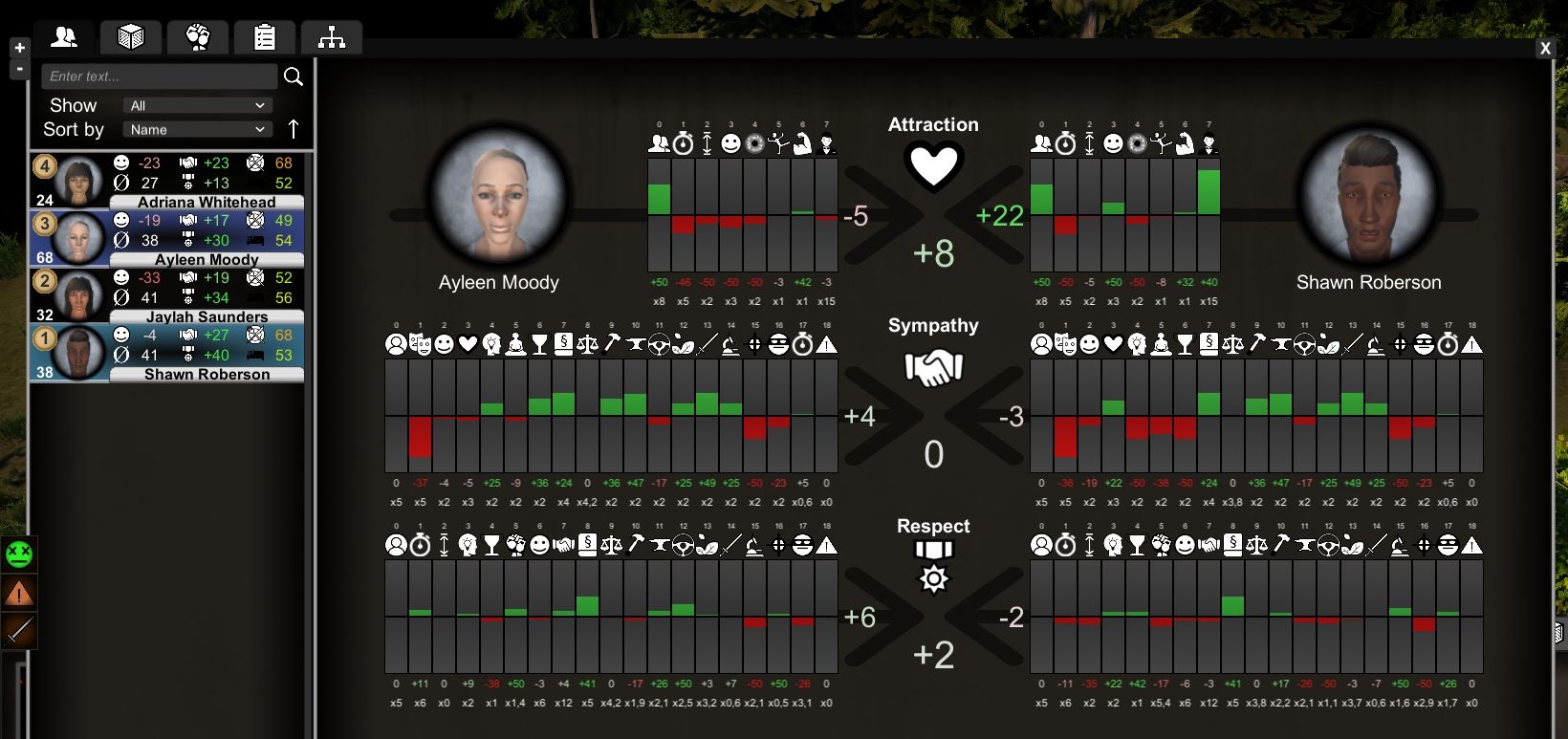Social/Relationship System
The social system will be an important feature of the game. So, here's how the social system works right now and how it is planned to work in future versions:
Every character has a relationship to every other character that he or she already met. These relationships are defined by three basic values which range from -50 to 50.
- Attraction
- Sympathy
- Respect
The basic values represent the characters' feelings for each other and are influenced by a list of factors. These factors can be inspected in the explorer (press 'E') once you left-clicked one character and right-clicked another character. Green bars increase the basic values proportionate to the size of the bar, red bars decrease it. Hover over the icons above the bars to show more information. In future versions the factors and their weighting will probably change depending on new features. The weightings of some factors are individual since they depend on the characters' traits.

Attraction tells how deeply a character is sexually attracted to another one. It is important for the initial sympathy value and love relationships and therefore for procreation. The attraction value depends on the taste values of a character. For example a character that likes blue eyes will get a high attraction value for characters with blue eyes. Other factors are additional physical characteristics, certain traits and attributes.
Sympathy defines how two characters like each other. Characters with high sympathy values for a certain character will consider this character as a friend. In future versions spending time with friends will make characters happier. Characters without friends or without the possibility to spend time with friends will become more and more unhappy. If characters have very high sympathy values for each other and high attraction values, they may start a love relationship in future versions. Sympathy is influenced by attraction, current happiness, shared skill interests, certain attributes and traits, amount of time spent together and - in future verisons - so called relationship events (for example fights or cooperative actions).
Respect determines the social ranking inside the group. The character with the highest average gained respect value will be the leader of the group. The rank of a character influences how happy he or she is, depending on the ambitions value (in traits). A character can respect another one without liking him or her at all. In this case respect may represent fear. Respect is a quite complex value to compute, since there are a lot of factors to consider with individual weightings for each character. The factors are mainly traits, attributes, sympathy and skill values. The weightings for these factors depend on the characters' own interests and traits.

In future versions the players' actions are represented by the leader. So, unpopular orders by the player will result in an aversion to the leader by other characters. The leader can be chosen at the start of the game and will be customizable to a certain degree. Depending on their happiness and their relationship to the leader characters might decide to refuse to obey an order. In the current version this happens only if a character is very hungry and has food items in his or her inventory (disobedience is indicated by purple color). In addition very unhappy characters might leave the group or try to start a revolution. For more on this there will be posts about the happiness system and the group dynamics system in the future.
Get Resurrection Nightmare
Resurrection Nightmare
Resurrection Nightmare simulates a small group's fight for survival during a zombie apocalypse - and you take control.
More posts
- Sound Update 1.51Apr 27, 2021
- v1.5 UpdateMar 17, 2021

Leave a comment
Log in with itch.io to leave a comment.